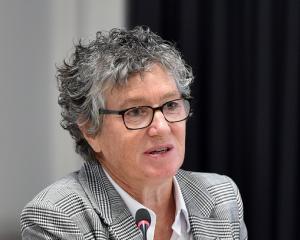
The company is seeking consent for the "passive discharge" of petroleum hydrocarbons from the Fryatt St site to meet regulatory requirements, due to the site’s historical use of fuel storage.
A consent hearing on the matter scheduled for this week was cancelled after the council said changes to proposed conditions for the company, as well as changes to its environmental management plan, had satisfied the council’s concerns.
Last year, infrastructure and development general manager Simon Drew said in a council submission, the council was concerned underground diesel and petrol pollution could leach into stormwater infrastructure and Otago Harbour, which was located about 60m from the site.
Further, the company’s environmental management plan could result in costs for the council, he said.
Now, after "constructive" discussions with the company, further testing at the site and new evidence from the company’s environmental consultant, council counsel Mike Wakefield asked independent commissioner Jan Caunter for the council to be excused from the hearing scheduled for Monday.
The council was the only submitter on Mobil’s application.
Ms Caunter excused the council from the hearing, but did not immediately close proceedings.
Instead, she asked a couple of minor, technical questions, due to be answered yesterday.
Mobil closed its Dunedin bulk storage terminal in 1995 after operating at the site for nearly 70 years.
The company then progressively removed above-ground infrastructure until 2007.
The site now sits more or less vacant.
However, environmental assessments have found residual contamination underground: contaminants were found in groundwater up to 40m south of the site.
Mobil environmental consultant Andrew Hart said last month, following the city council’s concerns, a round of stormwater sampling of the nearby stormwater network was done at the end of December.
That sampling showed petroleum hydrocarbon compounds were not present above reporting limits.
There was no evidence that stormwater lines in the area were acting as a groundwater sink or preferential pathway for contaminated groundwater from the site to enter the harbour.
"In my opinion, and as agreed in the officer’s report, the residual petroleum hydrocarbon impacts do not represent an unacceptable risk to the receiving environment and human health, and residual impacts can be managed through implementation of the [environmental management plan]."
Despite the initial council opposition, neither the council, the company nor the Otago Regional Council view the contamination’s effects on the environment as more than minor.
Mobil leases the site from Chalmers Properties, a subsidiary of Port Otago, and must hand the port company back a site that is either remediated, or with a consent for contamination in place.
Earlier this year, Port Otago chief executive Kevin Winders said the port company was keen to see the matter resolved.
There were no definite plans for the site, but it presented a range of opportunities for the port company, he said.










